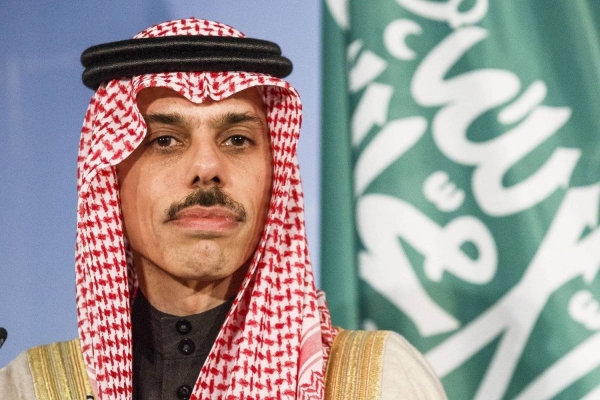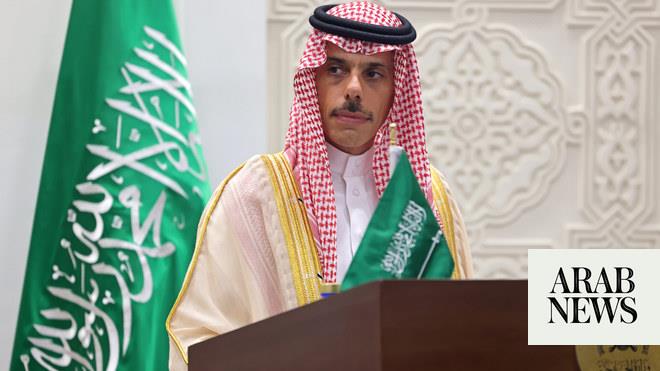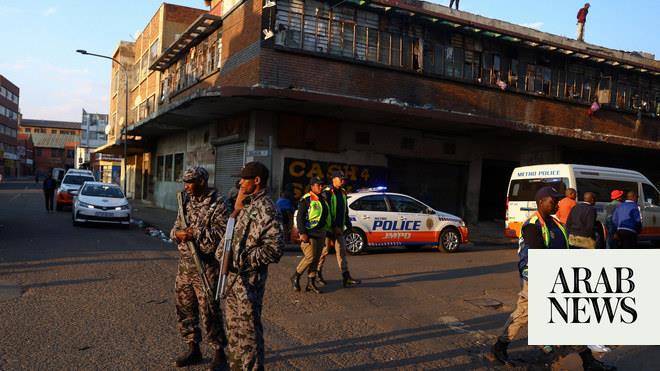
On behalf of Crown Prince and Prime Minister Mohammed bin Salman, Foreign Minister Prince Faisal bin Farhan is leading Saudi Arabia’s delegation attending the BRICS Plus Dialogue and BRICS-Africa Outreach conference. The foreign minister has left on Tuesday for South Africa.
The session, with the theme “BRICS and Africa: Partnership for mutually accelerated growth, sustainable development, and inclusive multilateralism,” will be held on Thursday, Aug. 24, in Johannesburg. The BRICS Plus and BRICS Africa dialogue will discuss many developments in the international arena and the global challenges. It will also discuss sustainable solutions to the challenges the world is witnessing, including the issues faced by BRICS and the Global South to build mutually beneficial partnerships in a multi-polar world.
The dialogue conference will be held on the sidelines of the 10th BRICS summit that began on Tuesday and will conclude on Thursday. The theme of the 15th annual BRICS summit is “BRICS in Africa: Collaboration for Inclusive Growth and Shared Prosperity in the 4th Industrial Revolution.”
The summit is an international relations conference attended by the heads of state or heads of government of the five member states: Brazil, Russia, India, China, and South Africa. President of South Africa Cyril Ramaphosa, Chinese President, Xi Jinping, Indian Prime Minister Narendra Modi, and Brazilian President Lula Da Silva are attending the summit. Russian Foreign Minister Sergei Lavrov is representing President Vladimir Putin who will join the summit meeting via a video link. About 50 other leaders are also attending. The BRICS group of major emerging economies account for more than 40 percent of the world population and a quarter of the global economy.
On the sidelines of the summit, Prince Faisal will hold a number of bilateral meetings with representatives of the countries participating in the BRICS Plus and BRICS Africa dialogue. The Saudi delegation also includes Deputy Minister of Foreign for International Affairs Dr. Abdulrahman Al-Rassi, Director General of the Office of the Minister of Foreign Affairs Abdulrahman Al-Dawood, and Director General of International Organizations Shaher Al-Khunaini.
Saudi Arabia’s bid to join BRICS
The expansion of the BRICS group is one of the major items on the agenda of the summit. Saudi Arabia, which is the largest trading partner of the BRICS group in the Middle East, is one of the applicants. Around 40 countries have expressed their interest to join BRICS, while 23 countries have formally applied, including Saudi Arabia, Argentina, Iran, the United Arab Emirates, Indonesia, Thailand, Cuba, Egypt, Nigeria. Saudi Arabia was among more than a dozen countries that participated in "Friends of BRICS" talks in Cape Town in June. It has received backing from Russia and Brazil to join the BRICS.
The expansion file has been receiving attention from all parties to the group for years, but its resolution has not yet come, amid expectations that the discussions on the main agenda of the summit will result in resolving the issue of expansion and the entry of new countries. Recent moves showed that Saudi Arabia, for its part, is focused on deepening cooperation with BRICS without considering the inevitability of joining the group, given that joining will ultimately add value to both sides, and will enhance political and economic cooperation, which necessarily leads to strengthening the economic and political balance in the world as sought by Saudi Arabia and many other member countries of the Organization of Islamic Cooperation (OIC).
This proposition is reinforced by the Saudi foreign minister’s assertion that his country is keen to develop future cooperation with the BRICS group by exploiting the capabilities and potentials possessed by the Saudis and the BRICS countries, with the aim of achieving common interests and prosperity for all. The BRICS member states and Saudi Arabia share basic values such as respect for the sovereignty of states, non-interference in their internal affairs, adherence to international law, collective action and cooperation in facing common challenges.












